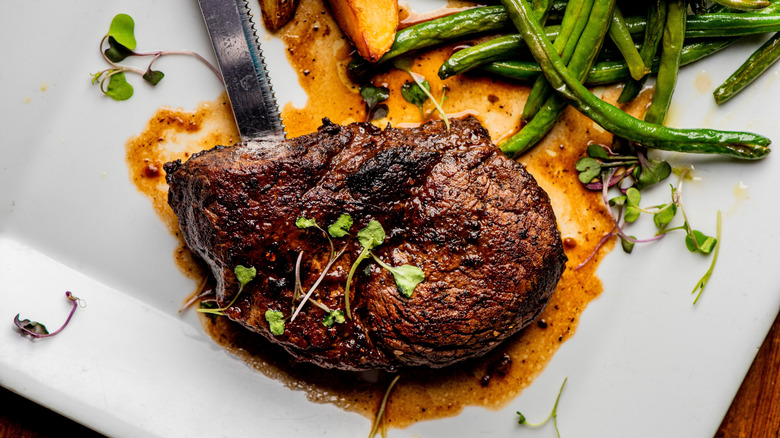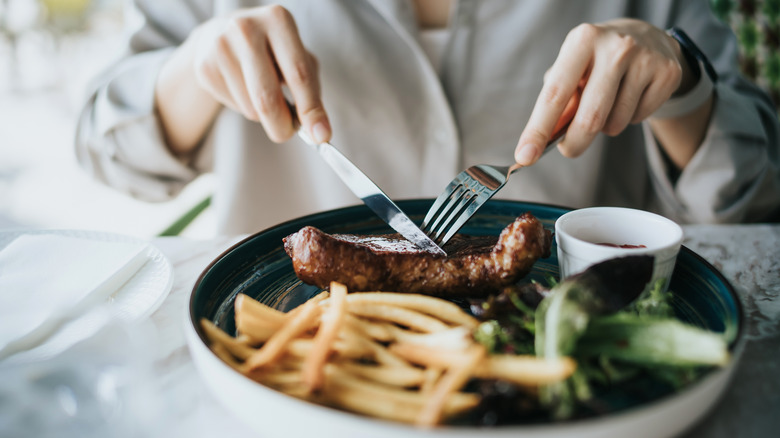The Rookie Mistake You Don't Want To Make At A Steakhouse
A steakhouse is more than just a restaurant: It's a multi-sensory adventure that focuses on high-quality meat served in an upscale atmosphere. If you're new to this type of dining, following the appropriate rules of etiquette will ensure that you and everyone around you have a pleasurable culinary experience. And, one of the most important things to know is the proper way to cut and eat your steak. It might sound rigid to follow certain rules to cut your steak, but the purpose is to respect and savor the meat.
Once everyone at your table is served, consider waiting a moment or two to let the meat rest so that the juices redistribute for the best flavor. When you're ready to begin eating, hold the knife in your dominant hand and your fork in the other. Using the fork stabilize the steak on your plate, and cut against the grain to maintain its texture. You only want to cut one bite at a time because the meat will cool too fast and lose its juices if you cut it all before eating, but there's an exception for children.
After each cut, you can either eat the slice with the fork in your non-dominant hand or switch the fork to your dominant hand first. If you switch, which is an American style of steak dining, you'll want to balance the knife along the edge of your plate. Then, you'll switch the utensils again to cut a new piece. This process might sound daunting, but it can help you chew slower so that you savor each bite and experience the flavors to their fullest.
More steakhouse etiquette and manners to keep in mind
How you cut and eat your steak is only one part of proper steakhouse etiquette. Of course, you should always follow general table manners, too, including keeping your elbows off the table and a napkin in your lap. You should never eat with your fingers, chew on a steak bone, or talk with your mouth full either.
When it comes to seasonings and condiments, the steak sauce tip to remember at a steakhouse is that moderation is better. These sauces are meant for lean cuts of meat that benefit from a little extra flavor, but a well-cooked steak should taste great without them. If you want to add a bit of salt or pepper, ask someone to pass you the seasonings rather than reach across the table.
Additionally, there are a few steakhouse ordering tips to keep in mind. For instance, a steakhouse rookie should avoid ordering certain dishes, such as dry-aged steak, to ease into the experience rather than jump in full steam ahead. It's recommended that first-timers choose from classic cuts — New York strip, T-bone porterhouse, ribeye, and filet mignon, the latter of which may be small but is the most tender cut of steak you can get.
It's also helpful to know the various cooking temperatures before you go. If you're ever unsure how you prefer your meat cooked, though, ask the server to have the kitchen prepare the steak to the recommended doneness. What you shouldn't do, though, is order well-done meat because it often loses its juices and, therefore, some of its flavor.

